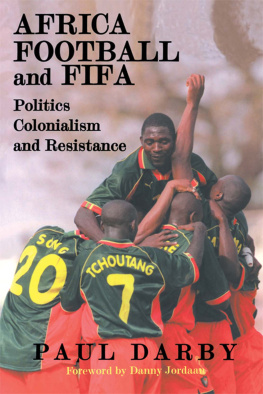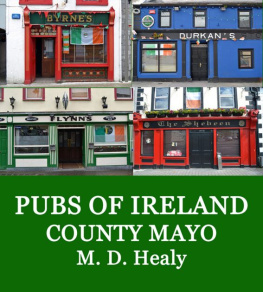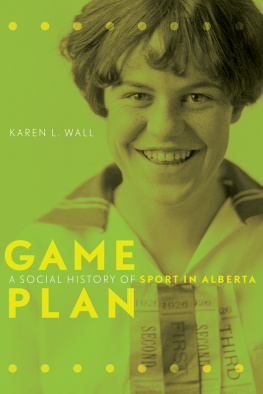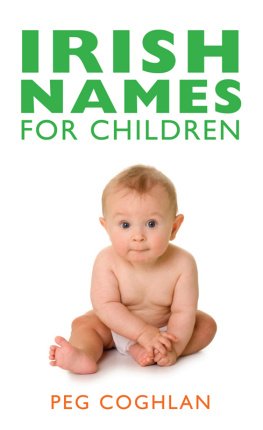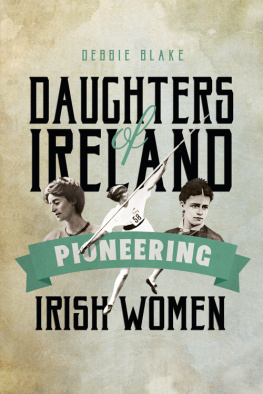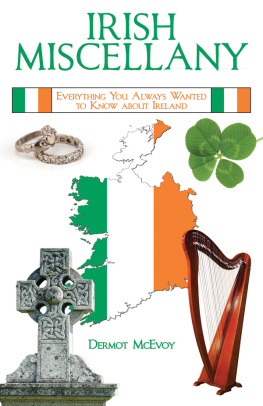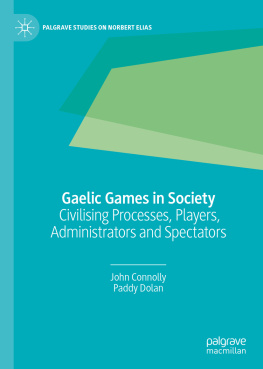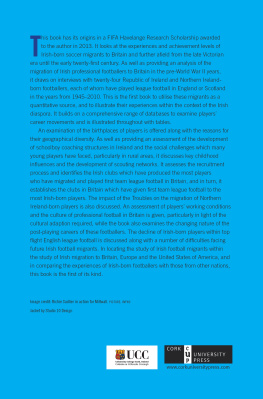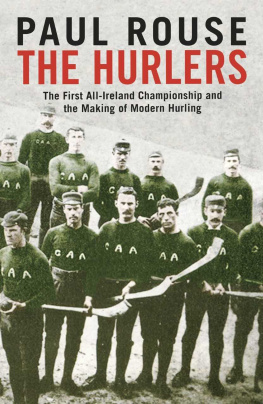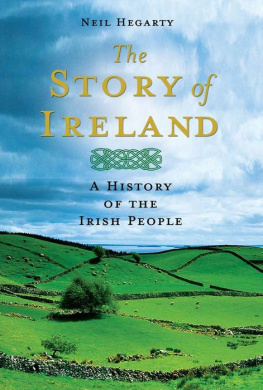Emigrant Players
Ireland and its inhabitants have often been described as being sports mad. As a relatively small geographical entity, Ireland, north and south, has produced a disproportionately high number of world class sports men and women who have excelled at the highest levels of their chosen sport. The significance of sport in Ireland though extends far beyond the achievements of such individuals. Sport has historically assumed a centrality in the lives of the island's inhabitants, a fact that can be measured by the numbers and commitment of participants as well as the emotional and financial investment of fans.
This book seeks to address the ways in which Irish aptitude and ebullience for sport has manifested itself in those parts of the world that have or have had relatively large Irish communities. The first part of the book explores the diffusion of Gaelic games to a number of centres of Irish immigration and examines the social, economic, political and psychological impact that these games had in helping the Diaspora adjust to life in what were often inhospitable environs. The second part of the book extends the analysis by examining the contribution of Irish sports men and women to the sports culture that they encountered in their new homes and assessing the ways in which their involvement in these sports allowed them to come to terms with and make their way in their new locales.
This book was previously published as a special issue of the journal Sport in Society
Paul Darby is a senior lecturer in Sport and Exercise in the school of Sports Studies at the University of Ulster (Jordanstown). He is author of Africa, Football and FIFA: Politics, Colonialism and Resistance (London and New York: Frank Cass, 2002), and joint editor (with Gavin Mellor and Martin Johnes) of Soccer and Disaster: International Perspectives (London and New York: Routledge, 2005). His current research, funded by the ESRC, concentrates on football labour migration from Ghana to Europe and he is completing a book for University College Dublin Press on Gaelic games and the Irish Diaspora in the United States. He sits on the editorial board of Soccer and Society and Impumelelo: The interdisciplinary electronic journal of African sport.
David Hassan is a Senior Lecturer in the School of Sports Studies at the University of Ulster at Jordanstown. He is also Deputy Executive Academic Editor of Sport in Society (Taylor and Francis Ltd.). He conducts research on the interplay of sports and national identity in Ireland and the political economy of sport on a global scale. In addition, forthcoming collections on football governance (with Sean Hamil, University of London, UK) and sport labour migration (with Carlos Henrique de Vasconcellos Ribeiro, Universidade Federal do Rio Grande do Sul, Brazil) will be published in early 2009.
Emigrant Players
Sport and the Irish Diaspora
Edited by
Paul Darby and David Hassan
First published 2008 by Routledge
2 Park Square, Milton Park, Abingdon, Oxon, OX14 4RN
Simultaneously published in the USA and Canada by Routledge
270 Madison Avenue, New York, NY 10016
Routledge is an imprint of the Taylor & Francis Group, an informa business
2008 Edited by Paul Darby and David Hassan
Typeset in Minion 10.5/13pt by the Alden Group, OxfordShire
Printed and bound in Great Britain by MPG Books Ltd, Bodmin, Cornwall
All rights reserved. No part of this book may be reprinted or reproduced or utilised in any form or by any electronic, mechanical, or other means, no known or hereafter invented, including photocopying and recording, or in any information storage or retrieval system, without permission in writing from the publishers.
British Library Cataloguing in Publication Data
A catalogue record for this book is available from the British Library
ISBN 10: 0-415-46491-9 (hbk)
ISBN 13: 978-0-415-46491-8 (hbk)
CONTENTS
PAUL DARBY AND DAVID HASSAN
Part 1: The Irish Diaspora and Gaelic Sport
PAUL DARBY
NICK MCCARTHY
DAVID HASSAN
DNAL MCANALLEN, PETER MOSSEY AND STEPHEN MOORE
SEAMUS KING AND PAUL DARBY
JOSEPH M. BRADLEY
Part 2: The Irish Diaspora and Global Sport
ALAN BAIRNER
MARCUS FREE
DENNIS P. RYAN AND KEVIN B. WAMSLEY
JOHN KELLY
SPORT IN THE GLOBAL SOCIETY was launched in the late nineties. It now has over one hundred volumes. Until recently an odd myopia characterised academia with regard to sport. The global groves of academe remained essentially Cartesian in inclination. They favoured a mind/body dichotomy: thus the study of ideas was acceptable; the study of sport was not. All that has now changed. Sport is now incorporated, intelligently, within debate about inter alia ideologies, power, stratification, mobility and inequality. The reason is simple. In the modern world sport is everywhere: it is as ubiquitous as war. E.J. Hobsbawm, the Marxist historian, once called it the one of the most significant of the new manifestations of late nineteenth century Europe. Today it is one of the most significant manifestations of the twenty-first century world. Such is its power, politically, culturally, economically spiritually and aesthetically, that sport beckons the academic more persuasively than ever to borrow, and refocus, an expression of the radical historian Peter Gay to explore its familiar terrain and to wrest new interpretations from its inexhaustible materials. As a subject for inquiry, it is replete, as he remarked of history, with profound questions unanswered and for that matter questions unasked.
Sport seduces the teeming global village; it is the new opiate of the masses; it is one of the great modern experiences; its attraction astonishes only the recluse; its appeal spans the globe. Without exaggeration, sport is a mirror in which nations, communities, men and women now see themselves. That reflection is sometimes bright, sometimes dark, sometimes distorted, sometimes magnified. This metaphorical mirror is a source of mass exhilaration and depression, security and insecurity, pride and humiliation, bonding and alienation. Sport, for many, has replaced religion as source of emotional catharsis and spiritual passion, and for many, since it is among the earliest of memorable childhood experiences, it infiltrates memory, shapes enthusiasms, serves fantasies. To co-opt Gay again: it blends memory and desire.
Sport, in addition, can be a lens through which to scrutinise major themes in the political and social sciences: democracy and despotism and the great associated movements of socialism, fascism, communism and capitalism as well as political cohesion and confrontation, social reform and social stability.
The story of modern sport is the story of the modern world in microcosm; a modern global tapestry permanently being woven. Furthermore, nationalist and imperialist, philosopher and politician, radical and conservative have all sought in sport a manifestation of national identity, status and superiority.
Finally, for countless millions sport is the personal pursuit of ambition, assertion, well-being and enjoyment.
For all the above reasons, sport demands the attention of the academic. Sport in the Global Society is a response.
J.A. Mangan
Boria Majumdar
Series Editors
Sport in the Global Society


